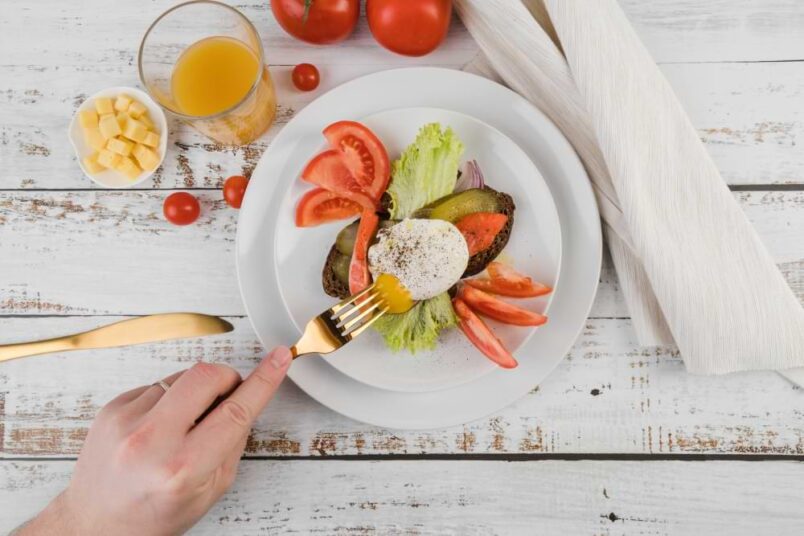Throughout your life, you may have heard a variety of information and topics about what is recommended (and what should be avoided) at dinner time if you don’t want to gain weight.
In this article, we are going to provide some more information on this area and offer you some light meals for dinner that will have you licking your fingers.
What can you have for dinner tonight?
To answer this question, the important thing is to know what your goal is and, above all, whether you tend to lose weight or gain it.
Rather than obsessing over what you can and cannot eat for dinner (this is an aspect of calorie deficit that we will discuss later), what is really important is that you learn to know yourself and know which foods make you feel better or worse at night.
There is a more or less accepted consensus that dinners should be light to avoid heavy digestions that can affect rest and sleep quality.
Read More: How Many Calories Are in a Bottle of Champagne?
What’s the lightest thing to have for dinner?
A perfect dinner should always be accompanied by a good portion of vegetables and/or greens and some source of protein in the form of low-fat animal meat (pork, turkey, chicken) or even fish. You can also complement this dish with some eggs (avoid the typical fried egg) and some legumes, but without overdoing them.
The beneficial thing about vegetables is that, in addition to filling us up and hardly adding any calories to our intake, they will also prevent us from snacking on something else after dinner.
Another myth is eating fruit at night. Some pieces may have a high calorie content due to the sugar in the form of fructose. However, you should keep in mind that fruit provides a high amount of fiber and is therefore very filling and will prevent you from consuming other foods that could have a higher calorie content.
How to make dinners that are not fattening and filling
There is no scientific evidence to support the idea that eating a light dinner is beneficial for losing weight. In reality, the important thing is not eating a light dinner but rather having a balanced calorie balance throughout the day.
Imagine that, based on your height, weight, and activity level, you need a daily caloric intake of 2,500 calories to be in balance and therefore not gain weight but not lose weight either. If you eat 2,000 calories during the day and 500 at dinner, you will be in balance. But you will also be in balance if you eat 1,500 calories during the day and 1,000 at dinner.
As you can see, it is the same number of calories but distributed at different times throughout the day.
Dinner ideas that don’t make you gain weight
Here are five ideas for appetizing dinners with a low calorie intake:
- Broccoli wok accompanied by pork tenderloin and grilled asparagus
- Steamed salmon with potatoes and lettuce and tomato salad
- Asparagus cream with omelette and sautéed mushrooms
- Chicken or turkey broth with tuna and egg escalivada
- Cream of zucchini with roasted red peppers and grilled chicken
Conclusion
Eating a balanced dinner that includes vegetables, lean proteins, and fiber can support weight management without sacrificing flavor or satisfaction. It’s all about portion control, nutrient balance, and understanding your own body’s needs. These low-calorie dinners not only help prevent weight gain but also support healthy sleep, digestion, and overall well-being.



